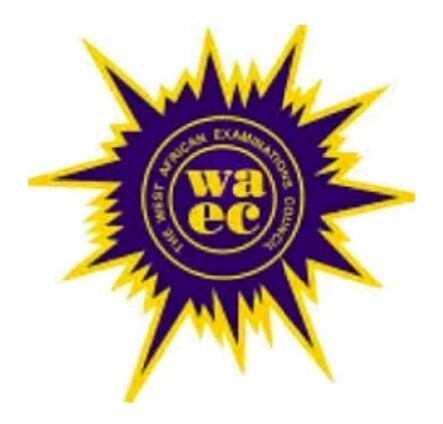Preparing for your Principles of Cost Accounting examination requires a thorough understanding of the syllabus provided by the West African Examination Council (WAEC).
About WAEC Syllabus for Principles of Cost Accounting 2024/2025
This blog post serves as a simplified guide, outlining the aims and objectives of the exam, key topics to study, and the recommended textbooks to aid your preparation.
By following this syllabus, you will acquire the necessary knowledge and skills to analyze costs, assist management in decision-making, and effectively present cost statements.
Aims and Objectives
The primary objectives of the Principles of Cost Accounting examination are as follows:
- Assembling, Analyzing, and Ascertaining Costs: Candidates will be tested on their ability to determine the costs involved in producing and procuring goods and services accurately.
- Cost Accounting as a Management Tool: The exam aims to develop candidates’ skills in utilizing Cost Accounting as a tool for planning, control, and decision-making within an organization.
- Economic Resource Utilization: Candidates will demonstrate an understanding of costing techniques that promote the economic use of resources.
- Presentation of Cost Statements: Knowledge of the fundamental methods used to present cost statements effectively will be assessed.
Scheme of Examination
The examination consists of two papers: Paper 1 and Paper 2. Here’s an overview of each paper:
Paper 1:
- Duration: 1 hour
- Format: Multiple-choice objective questions
- Total Marks: 25
- Candidates must answer all fifty questions within the given time.
Paper 2:
- Duration: 2 hours
- Format: Essay-type questions
- Total Marks: 75
- Candidates are required to answer five out of nine questions.
- The paper is divided into two sections: Section A (Theory of Principles of Cost Accounting) and Section B (Practices of Principles of Cost Accounting).
Syllabus Topics
To adequately prepare for the Principles of Cost Accounting exam, it is essential to cover the following topics:
- Introduction to Cost Accounting
- Characteristics of a Good Costing System
- Cost Classification and Types of Costs
- Elements of Cost (Materials, Labour, Overheads)
- Costing Methods (Job/Batch Costing, Contract Costing, Service Costing, Process Costing)
- Costing Techniques (Marginal and Absorption Costing, Break-even Analysis)
- Budgeting and Budgetary Control
- Standard Costing
- Cost Accounting
Recommended Textbooks
To enhance your understanding of the subject, consider using the following textbooks:
- “Cost Accounting” by Harper, W.M – Published by Pitman Publishing Ltd.
- “Cost Accounting” by T. Lucey – Published by DPP Publications Ltd.
- “Weldon’s Cost Accounting” by Owler, L.W.J and Brown, J.L – Published by Macdonald and Evans Ltd.
- “Principles of Cost Accounting” by Longman – Published for the Senior Secondary Schools in Ghana, Ministry of Education, Ghana (1991).
- “Cost Accounting” by Drury, Colin – Published by Professional Heinemann Publishing.
Additional Resources
In addition to the recommended textbooks, you may find the following local texts, pamphlets, and journals helpful:
- “Costing Made Easy” by Kingsford Opoku (Kings Series)
- “Costing for ‘U'” by Barnabas Dadzie (C for ‘U’ Series).
- “Cost Accounting for Senior High School” by Williams Asamoah Appiah (AKI-OLA Series) – AKI-OLA Publications, Accra.
FAQs
What topics are covered in the WAEC Principles of Cost Accounting syllabus for 2024/2025?
The WAEC Principles of Cost Accounting syllabus for 2024/2025 covers key topics including:
- Introduction to Cost Accounting: Definition, scope, and objectives of cost accounting.
- Cost Classification: Direct and indirect costs, fixed and variable costs.
- Costing Methods: Job costing, process costing, and batch costing.
- Marginal Costing: Contribution, break-even analysis, and cost-volume-profit analysis.
- Budgeting and Budgetary Control: Preparation and importance of budgets.
- Standard Costing: Setting and analyzing variances.
- Cost Accounting Techniques: Absorption and activity-based costing. These topics provide students with a comprehensive understanding of cost accounting principles for both theoretical and practical applications.
How can students prepare effectively using the WAEC Principles of Cost Accounting syllabus for 2024/2025?
To prepare effectively for the WAEC Principles of Cost Accounting exam, students should:
- Study the syllabus in detail: Break down the syllabus into manageable sections and allocate study time to each topic.
- Practice past questions: Regularly practicing past WAEC questions helps familiarize students with exam patterns and question styles.
- Utilize study materials: Use textbooks, online resources, and practice workbooks specifically aligned with the syllabus to reinforce learning.
- Seek additional help: Attend extra classes, tutorials, or engage with teachers to clarify difficult topics in the syllabus.
Where can I access the official WAEC Principles of Cost Accounting syllabus for 2024/2025?
The official WAEC Principles of Cost Accounting syllabus for 2024/2025 can be accessed:
- Online: By visiting the official WAEC website (www.waeconline.org.ng) and downloading the syllabus under the “Syllabus” section.
- School resources: Many schools provide printed or digital copies of the syllabus to students.
- WAEC study guides: Some WAEC-approved study guides and textbooks also contain a summary of the syllabus for reference during preparation.
Conclusion
Studying the Principles of Cost Accounting syllabus provided by WAEC is crucial for your exam preparation.
By focusing on the outlined aims, objectives, and topics, and utilizing the recommended textbooks and additional resources, you will equip yourself with the knowledge and skills necessary to excel in the examination.






